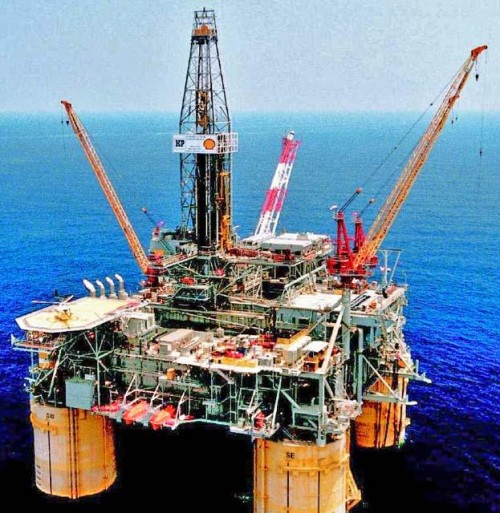March 21: 33rd annual Over and Under 5K Tunnel Run and Heart Health Expo (Houma)
March 9, 2009March 12
March 12, 2009The oil and gas production industry in the U.S. is looking at a “rough road ahead,” although the price of oil could rise sharply by August, said Don Briggs, president of the Louisiana Oil and Gas Association, at the group’s meeting in Houma last week.
Drilling budgets and production will decline in the U.S., layoffs will occur and OPEC will cut production as fast as it can, Briggs said. Producers are having trouble borrowing money. Oil prices will spike when supply cannot meet demand, he said.
Since its founding in 1992, Briggs has headed the Baton Rouge-based association, which represents independent oil and gas producers in the state and oilfield services providers.
Briggs sounded ominous throughout most of his talk.
The price of oil, peaking in July, has crashed 76 percent to $40 a barrel mainly because consumers have cut back. Seventy percent of oil consumption in the U.S. is spent on transportation.
In addition, Briggs said, “Speculators saw the price dropping and jumped out.” Last year, he said, speculator activity and demand from China and India helped drive the price of oil up.
The cost to explore for one barrel of oil in the Gulf of Mexico was $63 in 2006.
Dozens of ships in the Gulf of Mexico “are going around in circles,” he said.
“Pipelines are full,” Briggs said. “Investors bought oil and put them in ships.” The oil can be unloaded after the price rises.
The number of active rigs in the Gulf of Mexico has been nearly halved to 1230 since reaching a high of 2031 in 2008. The number of rigs drilling for natural gas is 970; 260 are drilling for oil. The current number of rigs should remain stable, according to Briggs. The rig count in south Louisiana should remain stable as well.
Other problems facing the nation’s energy supply include Mexico, which has the second largest oilfield in the world. The country could be out of oil in eight years and the Mexicans are desperately looking offshore, Briggs said.
OPEC is producing 2 to 3 million more barrels a day than the world is consuming, partly because the member nations cheat on one another, but that surplus will be gone in a year, he said. Production by OPEC had slackened considerably between 2003 and 2008.
Briggs was blunt about his opinion on the Obama Administration.
“I don’t think the Obama Administration has a clue,” he said. “They don’t think like businessmen.”
He said Obama is calling for the elimination of marginal tax credits on smaller producing wells that will especially concern producers in north Louisiana. Obama is also in favor of repealing several tax deductions, including a manufacturing deduction, affecting the oil and gas industry.
“If they’re taken away, we can’t survive,” Briggs said.
The cost of oil could hit $200 a barrel, he said, predicting that Obama may place a cap on the sky-high price.
He also derided Obama’s promotion of solar and wind power as not being capable of producing enough energy. Development of clean-burning fuels to power vehicles is long away.
Bright spots for oil and gas producers in the state include a possible lifting on drilling in the Gulf off the coasts of Florida and Alabama. Demand to remove the moratorium has been less intense since the drop in the cost of oil, but that will change when the price rises again, Briggs said.
Florida does not have the infrastructure to service the rigs, so they would be serviced heavily out of Port Fourchon and Venice in Plaquemines Parish, he said, estimating that the Gulf of Mexico contains 56 percent of undiscovered natural gas.
“This is the key, the eastern Gulf… Your companies will be servicing that,” he said.
The use of horizontal drilling – in which pipes curve to run parallel to the earth’s surface – to recover oil has Wall Street excited, according to Briggs.
But when the price of oil recovers, the oil and gas industry will have to contend with an aging workforce and rusting rigs, pipelines, and production facilities, he said.
“The Gulf of Mexico will provide oil,” Briggs said. “Without the state of Louisiana, the country is in trouble.”
Don Briggs predicts the oil and gas production industry has a “rough road ahead.” Drilling budgets and production will likely decline in the U.S. and layoffs will occur, he said. * File photo











